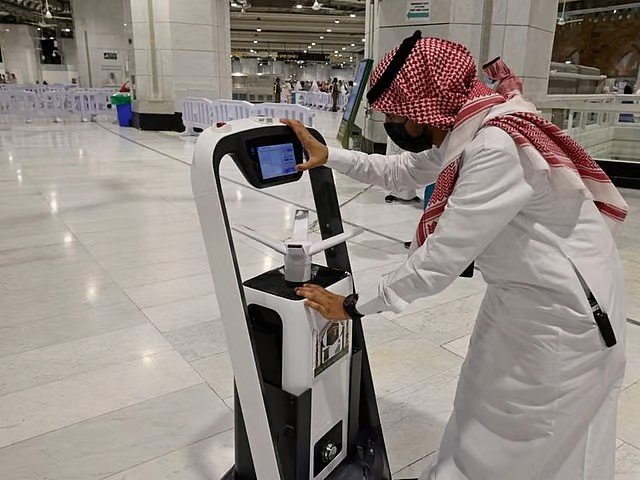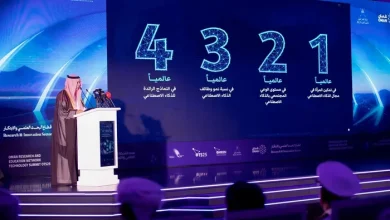
Saudi Arabia is at the forefront of a groundbreaking transformation of the Hajj pilgrimage through the strategic deployment of artificial intelligence (AI) technologies. In alignment with its Vision 2030 initiative, the Kingdom is leveraging cutting-edge digital solutions to enhance the overall experience for millions of Muslims undertaking one of Islam’s most sacred duties.
By incorporating AI, Saudi Arabia aims not only to improve operational efficiency and safety but also to deepen the spiritual journey of the pilgrims through personalized, accessible, and secure services.
Enhancing Crowd Management with AI
One of the most critical challenges during the Hajj is managing the movement of millions of pilgrims in a confined area over a short period. To mitigate risks and improve logistical coordination, Saudi authorities have implemented sophisticated AI-powered surveillance and crowd control systems.
These systems utilize advanced computer vision and machine learning algorithms to monitor crowd density, identify movement patterns, and detect potentially hazardous situations such as counter-directional flows or bottlenecks. Through real-time analytics, these tools support prompt interventions, thereby reducing the likelihood of stampedes and other crowd-related incidents.
The Saudi Data and Artificial Intelligence Authority (SDAIA), in collaboration with the Ministry of Interior’s Special Forces for Hajj and Umrah Security, has developed proprietary AI models tailored to the unique dynamics of the pilgrimage. These tools also aid in locating missing individuals, reuniting families, and facilitating emergency responses with increased precision and speed.
Introducing AI-Powered Robotic Assistance
In an effort to provide pilgrims with instant, multilingual support, Saudi Arabia has deployed a new generation of AI-powered service robots, such as the “Manarah 2.” These mobile robots are strategically stationed at key pilgrimage sites including the Grand Mosque in Mecca.
Manarah 2 is equipped with touchscreens, high-definition cameras, and natural language processing capabilities. It can engage with users in 11 different languages—including Arabic, English, French, Urdu, Turkish, and Bahasa Indonesia—making it accessible to pilgrims from diverse linguistic backgrounds. The robots provide religious guidance, help with navigation, answer frequently asked questions, and explain the rites of Hajj and Umrah, enhancing both convenience and understanding.
Implementing Smart Digital Services
Complementing the physical robotic presence are several digital innovations designed to enrich the spiritual and practical aspects of the Hajj. Saudi Arabia has installed interactive smart screens throughout major holy sites, offering instant access to maps, prayer times, emergency services, and real-time updates.
Another significant advancement is the introduction of a digital Qur’an platform, which supports audio and visual tools for recitation, translation, and learning. Pilgrims can engage with sacred texts using mobile devices or dedicated kiosks, allowing for a more immersive and personalized spiritual experience.
Furthermore, mobile apps and wearable devices have been rolled out to provide navigation, health monitoring, and prayer scheduling, creating a comprehensive smart ecosystem that supports pilgrims before, during, and after their journey.
Prioritizing Data Privacy, Security
As digital systems increasingly collect and process personal and biometric data, Saudi Arabia has taken proactive steps to safeguard user privacy. The Kingdom has implemented the Personal Data Protection Law to establish clear guidelines on data collection, storage, and usage.
This legal framework ensures that all digital services operate in compliance with stringent privacy standards, providing transparency and control to users over their data. Pilgrims can thus participate in technology-driven services with the assurance that their information is being handled responsibly and ethically.
Model for Future Pilgrimages
Saudi Arabia’s integration of AI into the management and enhancement of the Hajj pilgrimage serves as a global benchmark for how technology can elevate the quality and safety of large-scale religious events. By prioritizing innovation without compromising the sanctity of the pilgrimage, the Kingdom is setting new standards in hospitality, security, and spiritual facilitation.
This AI-driven transformation is not merely a logistical improvement—it represents a visionary reimagining of religious pilgrimage in the 21st century. Through its fusion of tradition and technology, Saudi Arabia is paving the way for future generations to experience the Hajj in a manner that is more accessible, meaningful, and secure than ever before.
Related Topics :
Saudi Crown Prince Welcomes Pilgrims, Reinforces Hajj 2025 Preparations
Hajj 2025 Season Begins: Saudi Arabia Welcomes First Pilgrims
Eco-Pilgrimage Revolution: Fashion Commission Unveils ‘Sustainable Ihram Initiative’
“Glorifying the Sacred Land” Opens Door to Volunteering for Ramadan, Hajj Seasons 1446










